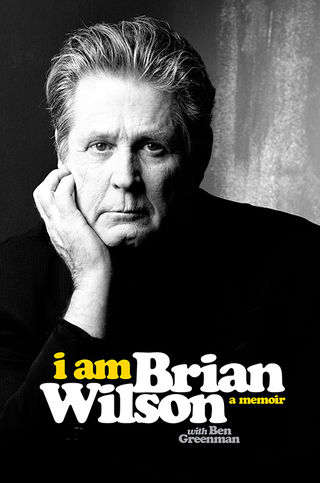Memory
The Extraordinary Sensorium of Brian Wilson
Beach Boys founder, deaf in his right ear, "listens" with his whole body
Posted June 12, 2017

Brian Wilson has created such rich, soaring, symphonic sounds. His masterful harmonies are jewels in our American songbook.
How has a man who has been deaf in his right ear since childhood done so as the genius creative force behind The Beach Boys for more than 50 years? We recently spoke between performances for his current tour celebrating the golden anniversary of his iconic album “Pet Sounds”.
"I don't know. I really don't know how I managed it," he says. Other greats have remarked upon the extraordinary way he compensated for being hit in the head with a lead pipe at the age of seven, robbing half his ability to hear.
“Jesus, that ear. [Wilson] should donate it to The Smithsonian…” Bob Dylan has said about the California native’s intact – and miraculous – left auditory organ.
In his new memoir, I AM BRIAN WILSON with Ben Greenman of The New Yorker, which I read as an advance copy, Wilson says:
"A professional musician who can't hear on one side of his head? It's funny but not funny," he wrote in the book's preface. "Over the years I have learned how to make it work in the studio but it's harder onstage, where you have to know what's going on all around you. It's hard to stay on key when you can't hear everything that is being played. The sound up there can be overwhelming and I have only one monitor, to my left. It has to be positioned perfectly, just right, or all I can hear is noise."
But I have a theory. I mention to Brian that the completely deaf virtuoso percussionist, Scotswoman Dame Evelyn Glennie, once told me she takes her shoes off to “hear” her accompanying orchestra through the stage with her feet. He’s so taken by this he asks me to send him more about her. I choose her TED talk, here: https://www.ted.com/talks/evelyn_glennie_shows_how_to_listen?language=en

“Yes, I do hear the music that way! Through my entire body!” he exclaims.
Our sensorium does not act as separate channels but as a whole, compensating for deficits in some channels by using others. In their late 2014 paper, "Compensatory Plasticity in the Deaf Brain: Effects on Perception of Music, researchers Arla Good, Maureen J. Reed and Frank A. Russo of Ryerson Univerity in Toronto addressed this. "When one sense is unavailable, sensory responsibilities shift, and processing of the remaining modalities becomes enhanced. This shifting of responsibilities appears to be compensatory in nature and has thus come to be referred to as compensatory plasticity."
Apart from using his entire body to hear music, Brian Wilson has an iron will. He has several times pulled himself out of the tailspin of mental illness and addiction to forge spectacular professional and personal comebacks. And with the help of his current wife, Melinda, he escaped an abusive and overbearing psychiatrist who he explains overmedicated him and controlled his every move. His extraordinary journey is intimately described in his new memoir.
Brian also has a fine memory and successfully recreates the sounds of his original recordings live on stage. I was present for his show at The Beacon Theater on Sept. 24 and found every classic song, despite new band members, extremely true to the originals. "We try to make 'Pet Sounds' exactly as the record," he explains to me. "I can feel it, I can."
I believe it is this combination of things -- his use of his entire body, compensatory plasticity, his iron will and a superior memory -- which align to form a "perfect storm" of talent in a man whose life could have taken much less optimistic turns so many times.
He asked me to pass this message onto Psychology Today readers: "People should not take drugs because they can be very unpleasant and I wish I hadn’t." In addition to his abuse of illegal drugs, "my doctor medicated me to the point I couldn’t help myself."
What's ahead for Brian? He would like to write new songs about music itself. How meta! "I would like to write about rock and roll and I love rock and roll, I think it’s great music."
Brian Wilson's memoir is available through Da Capo Press here as well as in book stores starting today: https://www.amazon.com/I-Am-Brian-Wilson-Memoir/dp/0306823063.


